Governance
Governance
Board of Directors
Executive directors

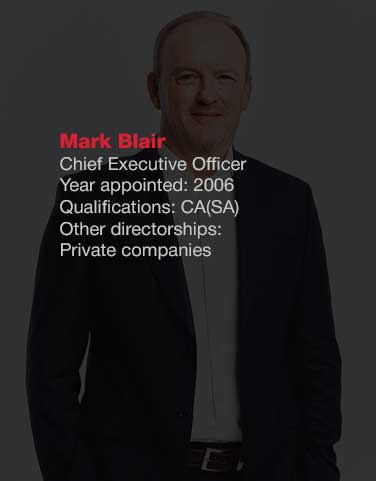
Mark Blair
Chief Executive Officer


Praneel Nundkumar
Chief Financial Officer

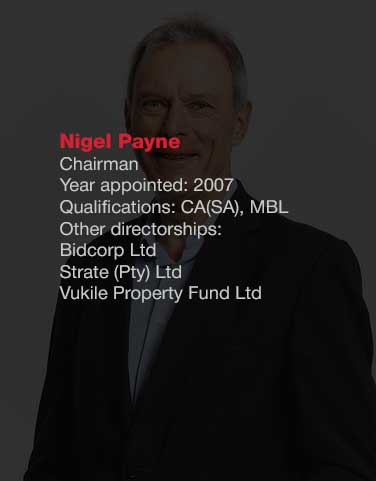
Nigel Payne
Independent, Chairman

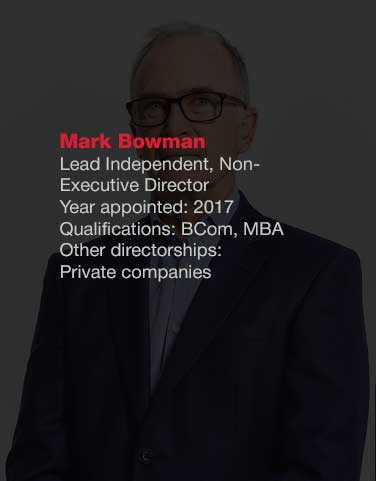
Mark Bowman
Lead Independent, Non-Executive Director

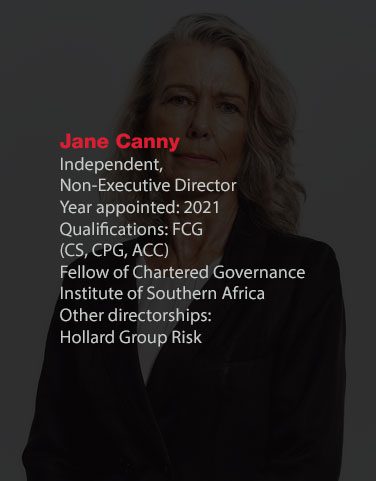
Jane Canny
Independent, Non-Executive Director


Harish Ramsumer
Independent, Non-Executive Director

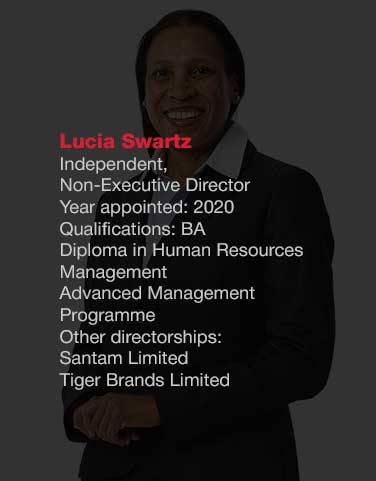
Lucia Swartz
Independent, Non-Executive Director

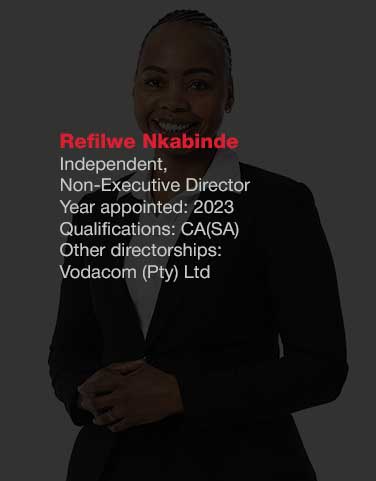
Refilwe Nkabinde
Independent, Non-Executive Director


Neill Abrams
Independent, Non-Executive Director


Richard Inskip
Independent, Non-Executive Director


Mark Blair
Chief Executive Officer


Praneel Nundkumar
Chief Financial Officer

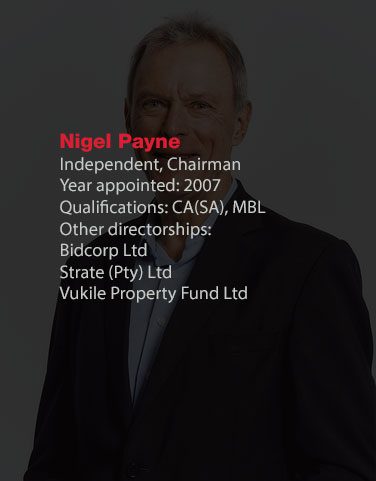
Nigel Payne
Independent, Chairman


Mark Bowman
Lead Independent, Non-Executive Director


Jane Canny
Independent, Non-Executive Director


Harish Ramsumer
Independent, Non-Executive Director


Lucia Swartz
Independent, Non-Executive Director


Refilwe Nkabinde
Independent, Non-Executive Director


Neill Abrams
Independent, Non-Executive Director


Richard Inskip
Independent, Non-Executive Director
“Where ordinary people do extraordinary things”
Stewart Cohen, (Co-Founder)
Board Committees
Commitment Statement
Integrity, competence, responsibility, accountability, fairness and transparency are the key pillars for ethical and effective leadership and the starting point of good corporate governance. From the board and executive leadership to store associates, both individually and collectively, every group associate should do the right thing and display these key traits to enable delivery of appropriate outputs. Good corporate governance is aspirational and must be continuously monitored, adapted and improved. The disruptions arising from the COVID-19 pandemic highlighted the strength of the board’s leadership through consistent application of and continued commitment to the group’s beliefs. This ensured the group’s strategic direction and core values were uncompromised during the unprecedented past year. Governance practices must continue to be aligned and enable value creation through the achievement of group strategy. The beliefs of Passion, Value and Partnership (refer page 9) and as expanded on in the group’s code of conduct, is the group’s internalisation of ethics and the standard of conduct against which each director and the board is measured.
Commitment Statement
Integrity, competence, responsibility, accountability, fairness and transparency are the key pillars for ethical and effective leadership and the starting point of good corporate governance. From the board and executive leadership to store associates, both individually and collectively, every group associate should do the right thing and display these key traits to enable delivery of appropriate outputs. Good corporate governance is aspirational and must be continuously monitored, adapted and improved. The disruptions arising from the COVID-19 pandemic highlighted the strength of the board’s leadership through consistent application of and continued commitment to the group’s beliefs. This ensured the group’s strategic direction and core values were uncompromised during the unprecedented past year. Governance practices must continue to be aligned and enable value creation through the achievement of group strategy. The beliefs of Passion, Value and Partnership (refer page 9) and as expanded on in the group’s code of conduct, is the group’s internalisation of ethics and the standard of conduct against which each director and the board is measured.
Code of Conduct
The code of conduct, which formalises the group’s stance on various ethical issues, includes and upholds the group’s commitment to human rights, equal opportunity, fair treatment, forced and child labour, environment, and anti-bribery and corruption principles. The code of conduct is published on the group’s website and is incorporated into associate employment contracts and contractual arrangements with suppliers and other service providers. The externally facilitated KPMG FairCall hotline provides a confidential mechanism for associates and third parties to report non-compliance with the code of conduct.

